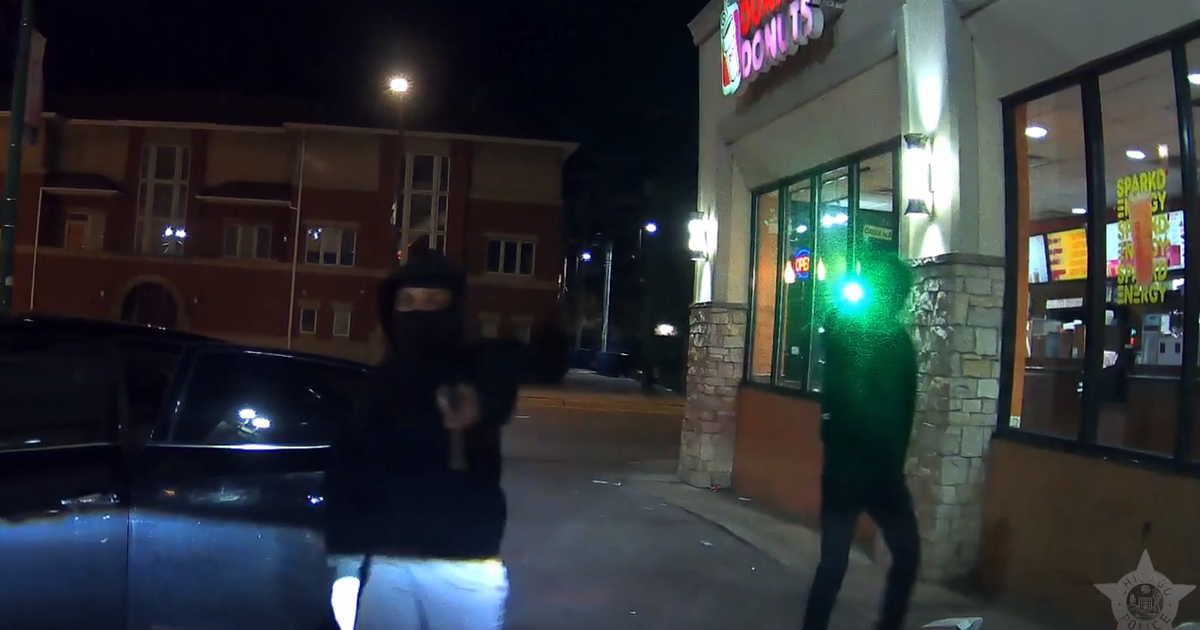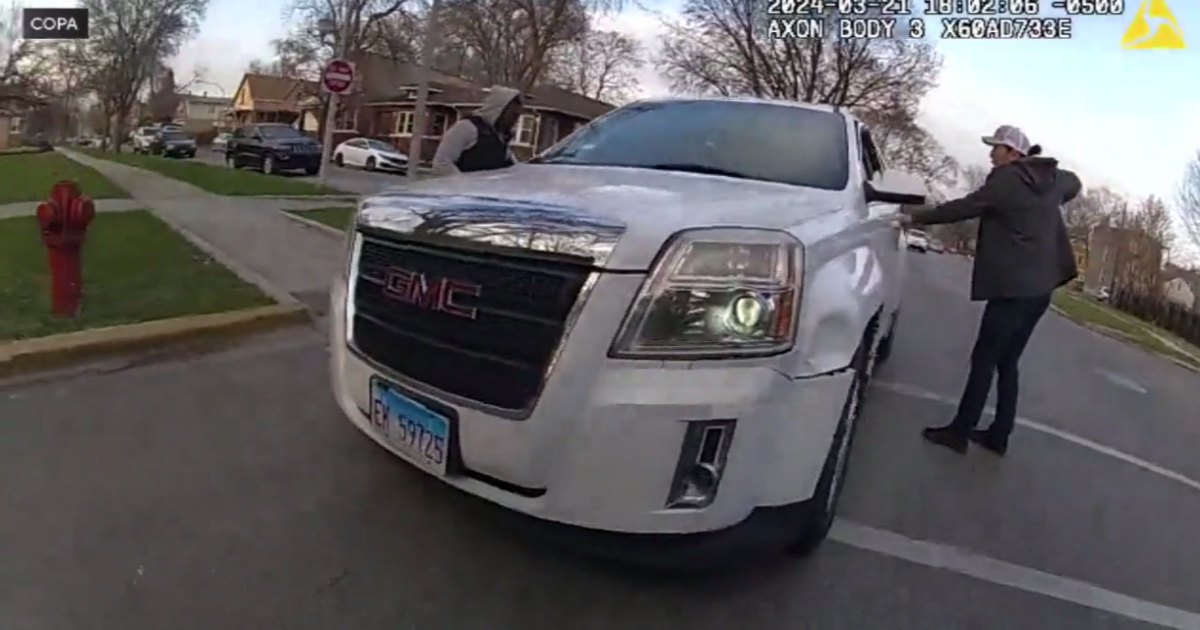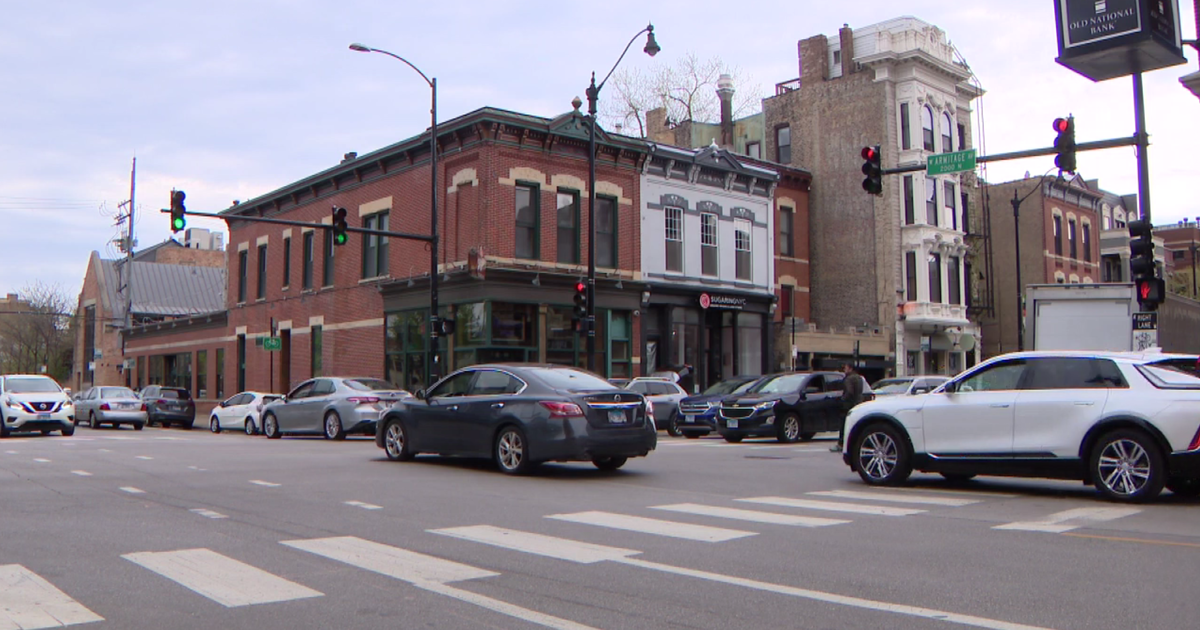Eric Lurry's Widow Sues Joliet Officers Over His Death In Police Custody
CHICAGO (CBS) -- The widow of Eric Lurry, who died in Joliet police custody in January, has filed a federal lawsuit against the city of Joliet and four officers involved in his arrest, accusing them of violating his civil rights and causing his wrongful death.
Video first obtained by the CBS 2 Investigators earlier this year showed Lurry, 37, on Jan. 28 as he was in the back seat of a police squad car, handcuffed during a drug-related arrest.
At one point, an officer was seen punching Lurry's nose shut, while another inserted a baton into his mouth. Lurry was later pronounced dead.
According to a federal lawsuit filed in Chicago on Friday, police had no cause to arrest Lurry in the first place, and then showed a "willful, wanton" disregard for his safety.
Nicole Lurry, who filed the lawsuit on behalf of her late husband's estate, has said her husband had just finished getting his license to be a barber, and was enrolled in school to become an instructor at the barber school. But in late January, the 37-year-old - who had served time before for drugs - got arrested again.
[scribd id=471740473 key=key-Qjf7KmLjsqdCH0SmL3Ee mode=scroll]
According to the lawsuit, police pulled over Lurry and Kenan Kinney on Jan. 28, and performed a pat-down on Lurry, finding $1,380 in his pockets, but no contraband or weapons of any kind. After confirming his identity, and giving him an iPhone retrieved from Kinney's car, they returned the money and let him go.
As Lurry was walking away, police started talking to him again, and asked him to return the iPhone. After he gave it back, police seized the money from his pockets, and conducted another pat-down, without probable cause, according to the lawsuit. Lurry was then taken into custody and placed in the back of a squad car.
The police misconduct allegedly happened after Eric Lurry was put in the back of a police car and taken to the Joliet police headquarters.
A camera inside the squad, which captured a video running seven minutes long, is the most critical in capturing how Eric Lurry was treated - especially during a crucial span where his airway appears to be obstructed for 1 minute and 38 seconds.
It all started when a sergeant, Doug May – seen in plain clothes and a hooded sweatshirt - enters the vehicle and strikes Lurry in the face.
"Wake up, bitch," the plainclothes sergeant is heard saying.
Sgt. Javier Esqueda, a 27-year veteran of the Joliet police force who blew the whistle on the video of Lurry's death, said Lurry appeared to be chewing something at first, and with his hands cuffed behind him, starts to close his eyes and become lethargic during his ride to the Joliet police station.
Esqueda said there was possibly a bag of drugs in Lurry's mouth, and the sergeant said officers were trying to get him to open his mouth using a maneuver to cut off his air supply.
"That's been written in the law for a few years. You can't do that anymore, to try to get them to cough up any kind of drugs in their system," Esqueda said.
He said the baton inserted into Lurry's mouth and toward his throat was also wrong.
Lurry, a 37-year-old father of three, was pronounced dead later that night at a hospital.
According to the lawsuit, officers "immediately recognized that Mr. Lurry was in medical distress and not fully conscious."
"Despite Mr. Lurry's obvious serious medical needs, no Defendant summoned medical attention for Mr. Lurry at that time," the lawsuit states.
Instead, the lawsuit claims two officers tried to retrieve bags containing drugs from his mouth, and in doing so, pinched his nose shut for nearly two minutes, "restricting him from taking in oxygen." The lawsuit also claims one officer inserted a baton in Lurry's mouth, blocking his airway.
"The acts of Defendant Officers were willful, wanton, and executed with a conscious disregard for the safety of others," the lawsuit states. "As a direct and proximate result of the aforementioned willful and wanton acts and reckless conduct of Defendant Officers, Eric Lurry died."
Sgt. Esqueda has said he believes Lurry was already dead before he went to the hospital, noting one officer in the video eventually headed to the squad with a defibrillator.
"There obviously is a lot wrong with that video, and if anybody doesn't feel any pain by watching that, there's something wrong with them," Esqueda said.
The lawsuit also accuses police of tampering with or destroying the audio and video footage from the squad car's camera system "in an attempt destroy and conceal evidence of wrongdoing."
Joliet Mayor Bob O'Dekirk has previously told CBS 2 he was concerned about how the video evidence was handled.
He said CBS 2 obtained a cameras angle he never knew about, and audio is missing.
"Clearly, there was some improper behavior on that video, any way you slice it," O'Dekirk said. "They were things that police officers are not supposed to do."
What did Mayor O'Dekirk feel when he saw the video?
"I think it was tragic. It certainly wasn't necessary. I think everyone could agree with that," he said, "and I can definitely empathize with the family at this man."
Mayor O'Dekirk said our investigation into Lurry's death exposed new evidence that was never turned over to him or city lawyers that handle possible misconduct cases.
He knew a seven-minute squad car video from January had recently surfaced revealing how Lurry's ability to breathe was obstructed for a minute and 38 seconds, but was never told about another camera angle obtained by the CBS 2 Investigators.
The Will County Coroner's office has concluded that Joliet police officers did not play a role in Lurry's death, and that a drug overdose was to blame.
However, the lawsuit contends it was the police officers actions, and their disregard for Lurry's health, that caused his death.
The lawsuit seeks unspecified punitive and compensatory damages.



